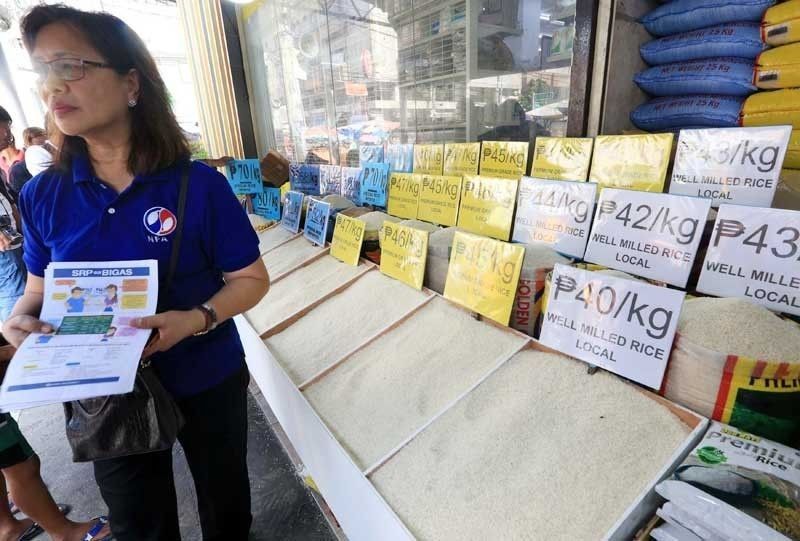IRR on rice tariffication law out

MANILA, Philippines — All concerned agencies have signed the implementing rules and regulations (IRR) of the Rice Tariffication Act, including the Department of Agriculture (DA) that made last-minute comments on the draft, the National Economic and Development Authority (NEDA) said.
With the issuance of a joint memorandum circular by NEDA, DA and the Department of Budget and Management, the final draft of the IRR earlier approved by the National Food Authority (NFA) Council has been adopted for implementation.
“We celebrate this milestone for the agriculture sector. All concerned agencies, including NEDA, are duty bound to implement this historic law. In moving forward, we all have the long-term goal of modernizing the rice industry and improving the lives of all Filipinos, especially farmers, in our minds,” said Socioeconomic Planning Secretary Ernesto Pernia.
Inputs from a series of public consultations organized by the DA with its stakeholders in Northern Luzon, Southern Luzon, Mindanao and Visayas region, as well as online consultations led by NEDA, have been incorporated into the final version of the IRR.
Among the salient provisions in the IRR are guidelines on the President’s powers and the enforcement of safeguard measures in case of emergency such as the sudden rise and drop in domestic prices.
It also guides the reorganization of the NFA, following the repeal of its regulatory powers and the change of its functions to maintenance and management of the country’s buffer stocks.
The NFA Council, chaired by Agriculture Secretary Emmanuel Piñol, will likewise commission a study to determine NFA’s optimal buffer stock for emergency and relief purposes.
For the meantime, the NFA will maintain its current buffer stock level of 15 to 30 days based on a daily national rice consumption of 32,593 metric tons per day.
The unused stocks will be unloaded and sold in the domestic market at the prevailing market price or even at a slightly lower price as long as this would cover storage logistics costs.
The IRR also details the establishment of the Rice Competitiveness Enhancement Fund (RCEF) and how the P10-billion fund from the General Appropriations Act will be transferred directly to implementing agencies.
Similarly, the document also sets the guidelines on the allocation of the tariff revenues in excess of P10 billion. This will be tapped to provide direct financial assistance to rice farmers adversely affected by the new rice import regime.
While the IRR takes effect 15 days after its publication, self-executing provisions of the law are now being enforced, said NEDA.
Concerned agencies, such as the Bureau of Customs and the Bureau of Plant Industry of the DA, will no longer require the NFA permit, license, or registration for trade and importation of rice.
- Latest
- Trending

























